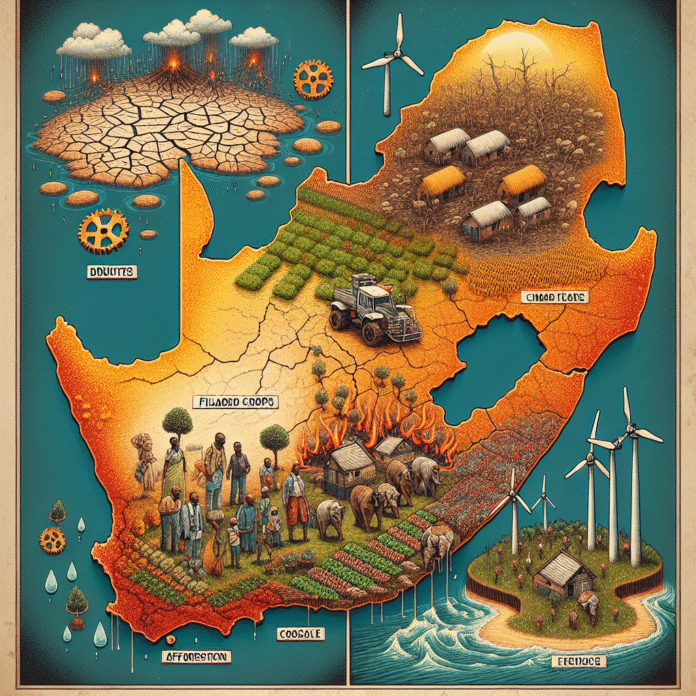South African Study Reveals Four Low-Income Communities Struggling with Global Warming Challenges and Necessary Changes
South African Research Reveals Vulnerability of Low-Income Communities to Climate Change
A recent study conducted in South Africa highlights the severe challenges faced by four low-income communities in coping with the impacts of global warming. As climate change continues to escalate, these communities are increasingly finding it difficult to adapt to the associated environmental changes, which include rising temperatures, erratic weather patterns, and heightened risks of natural disasters.
The Communities at Risk
The research focused on specific neighborhoods that are particularly vulnerable due to a combination of socio-economic factors. Limited access to resources, inadequate infrastructure, and a lack of social support systems exacerbate their susceptibility to climate-related challenges. The findings underscore the urgent need for targeted interventions to bolster their resilience against the adverse effects of climate change.
Key Findings and Implications
The study revealed that residents in these communities often lack the financial means to implement necessary adaptations, such as home improvements to withstand extreme weather events or access to clean water and sanitation. Furthermore, many households face food insecurity as agricultural productivity declines due to shifting climatic conditions. This intersection of climate change and economic hardship underscores a critical need for comprehensive policy responses.
What Needs to Change?
To address these challenges, several key actions are necessary:
1. **Enhanced Infrastructure**: Investment in resilient infrastructure is crucial. This includes improving drainage systems, building flood defenses, and ensuring access to clean water and sanitation facilities.
2. **Community Engagement**: Local residents should be actively involved in the planning and implementation of climate adaptation strategies. Their firsthand knowledge can guide more effective solutions tailored to their specific needs.
3. **Financial Support and Resources**: Providing financial assistance and resources to low-income communities can empower them to adopt mitigation strategies. This may include access to subsidized renewable energy solutions and agricultural support programs.
4. **Education and Awareness**: Increasing awareness about climate change and its impacts is vital. Educational programs can equip residents with knowledge on sustainable practices and emergency preparedness.
5. **Collaborative Policy Frameworks**: Governmental and non-governmental organizations must work together to create policies that prioritize the needs of vulnerable communities. This collaborative approach can ensure that adaptation measures are comprehensive and inclusive.
Looking Ahead
The findings of this study serve as a call to action for policymakers, community leaders, and stakeholders. Addressing the vulnerabilities of these low-income communities is not only a matter of social justice but also critical for the overall resilience of society in the face of climate change. By implementing proactive measures, we can work towards a more sustainable and equitable future for all South Africans.
